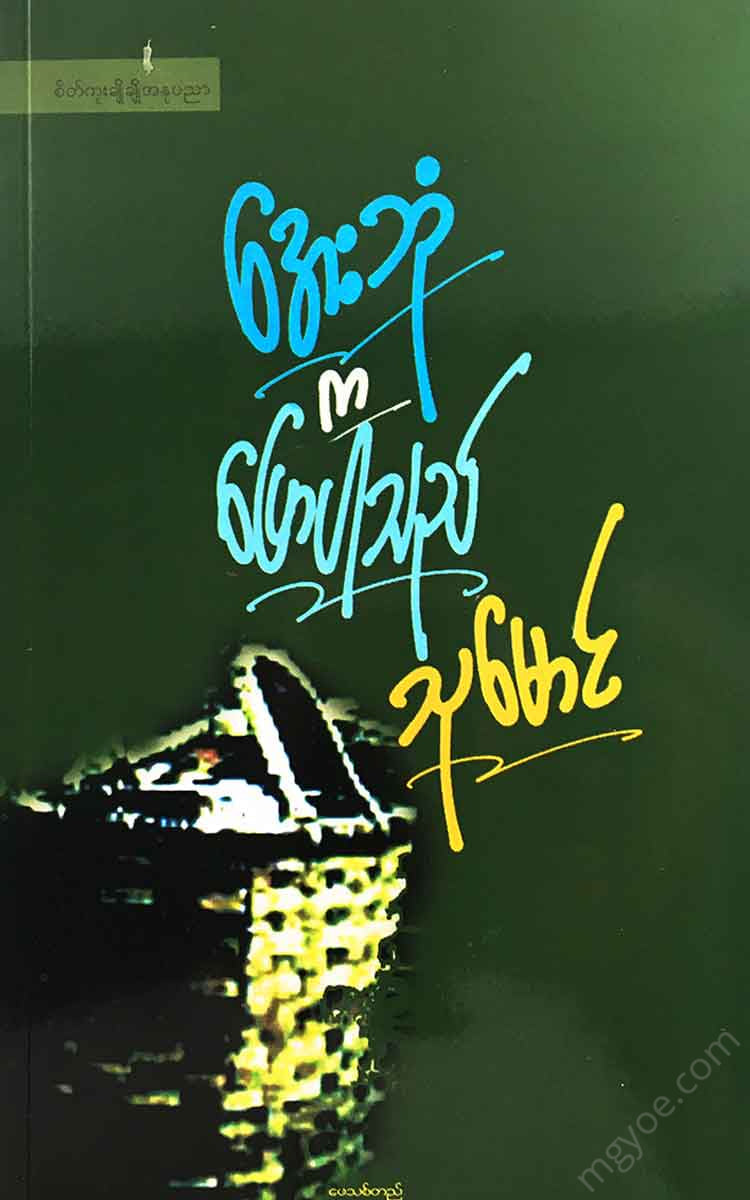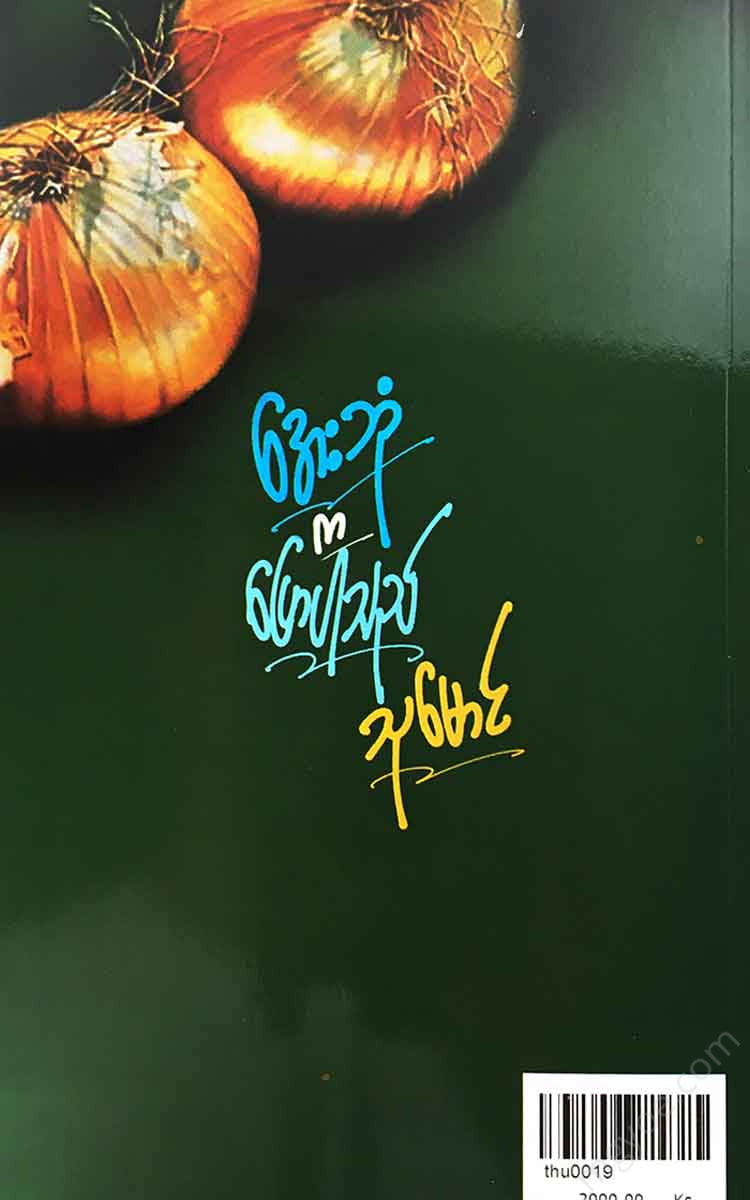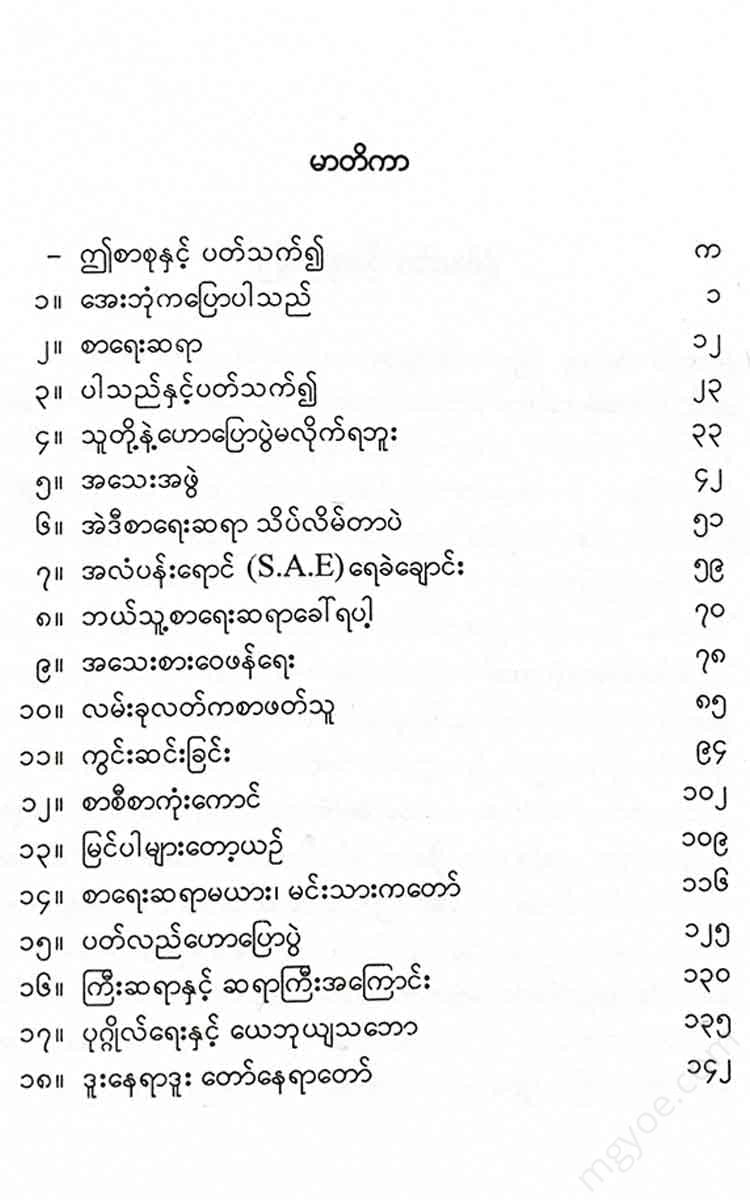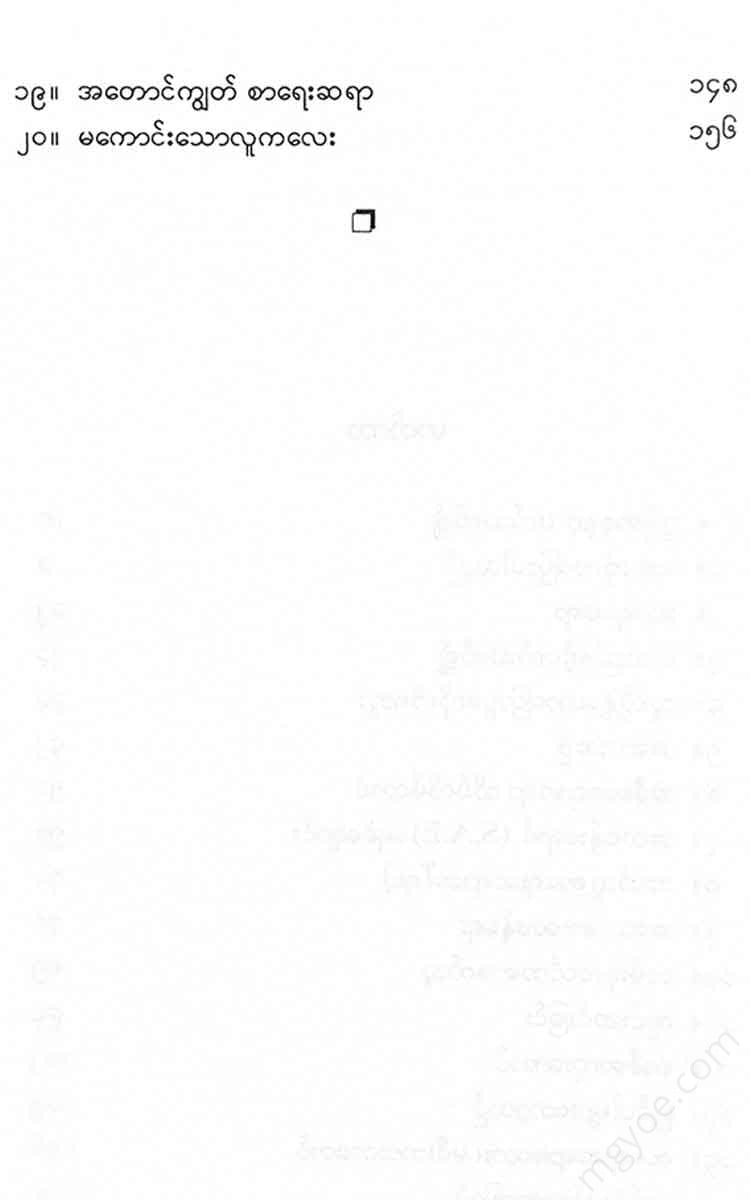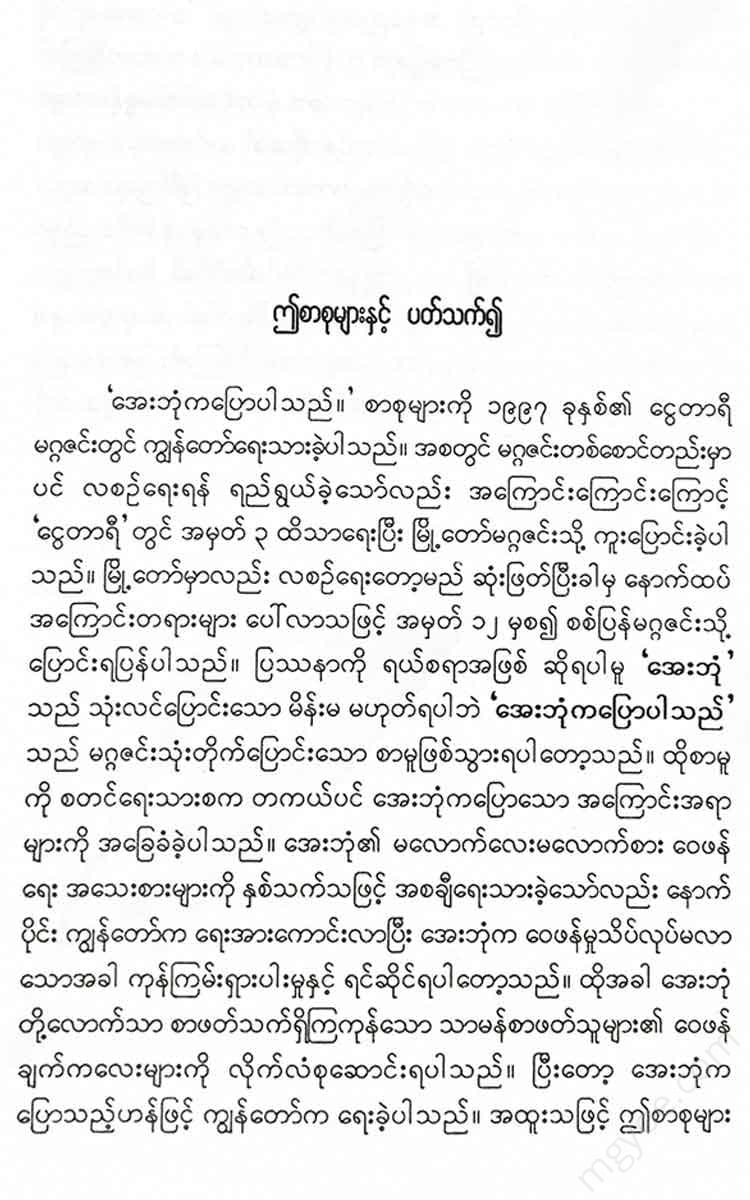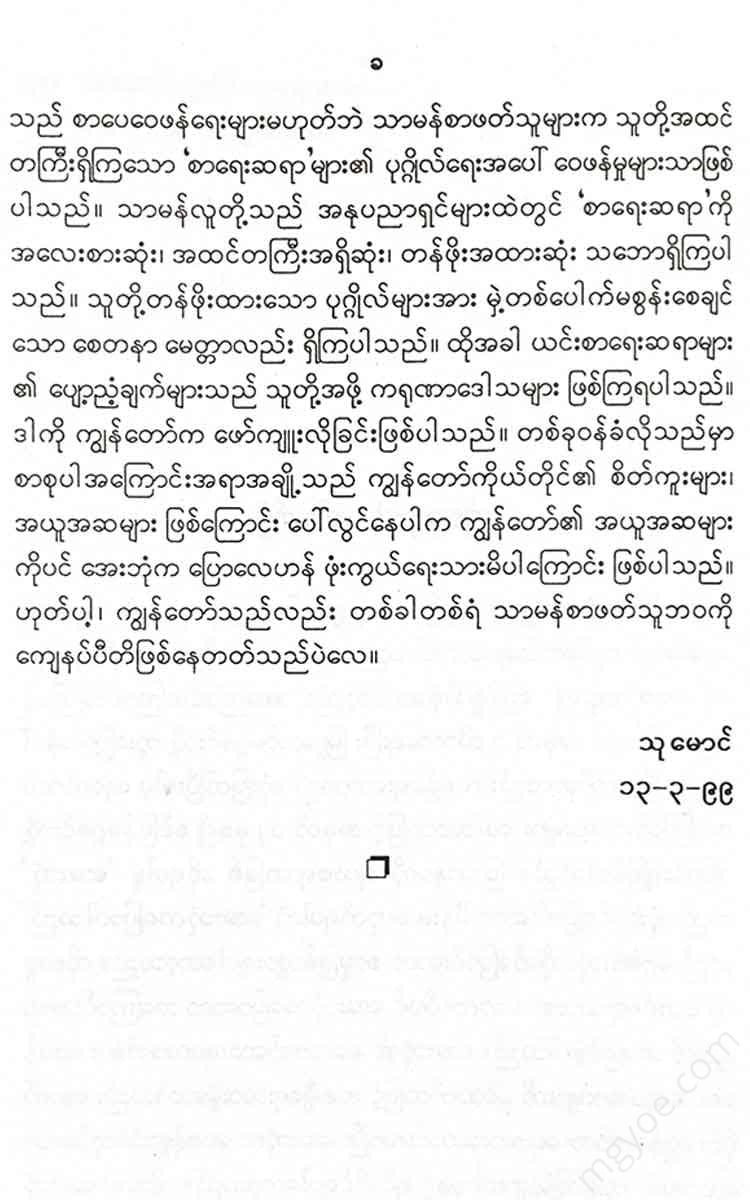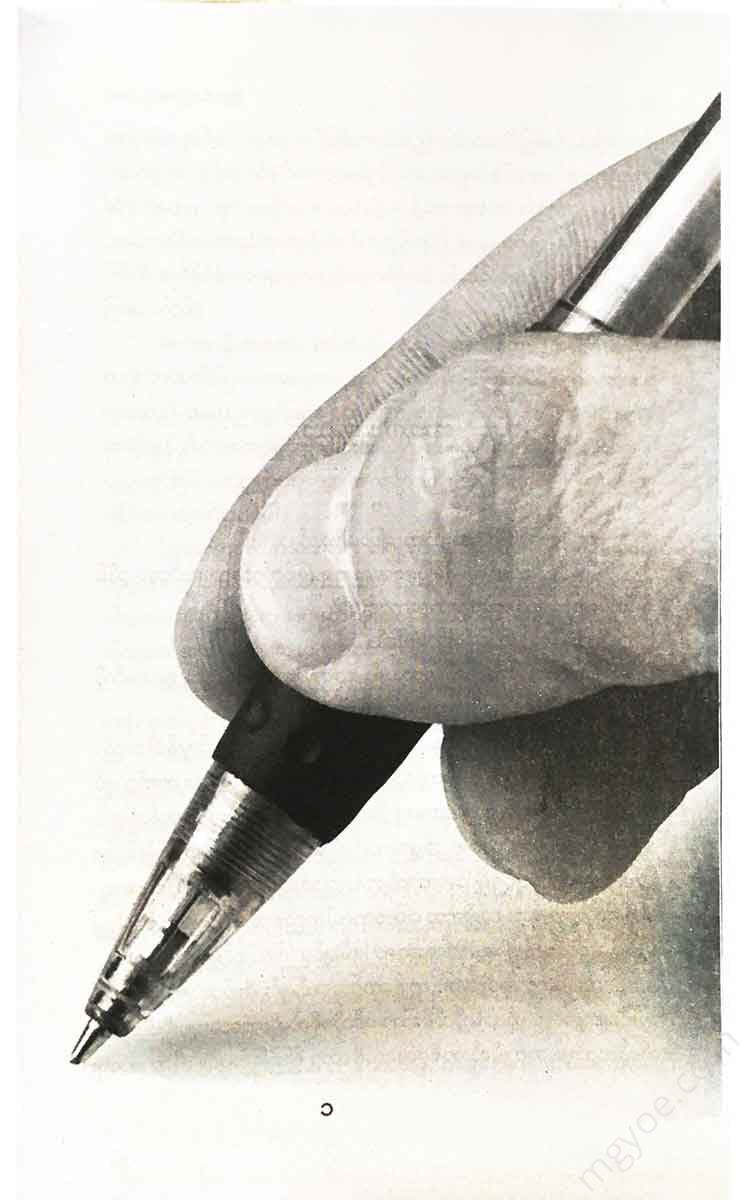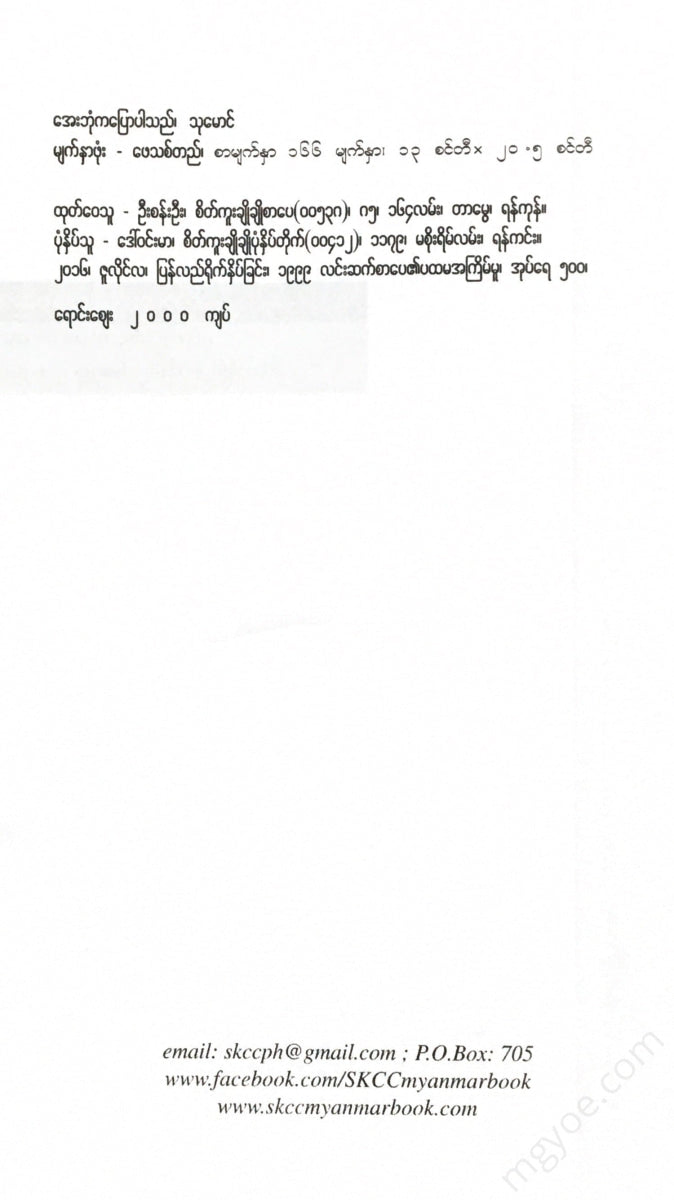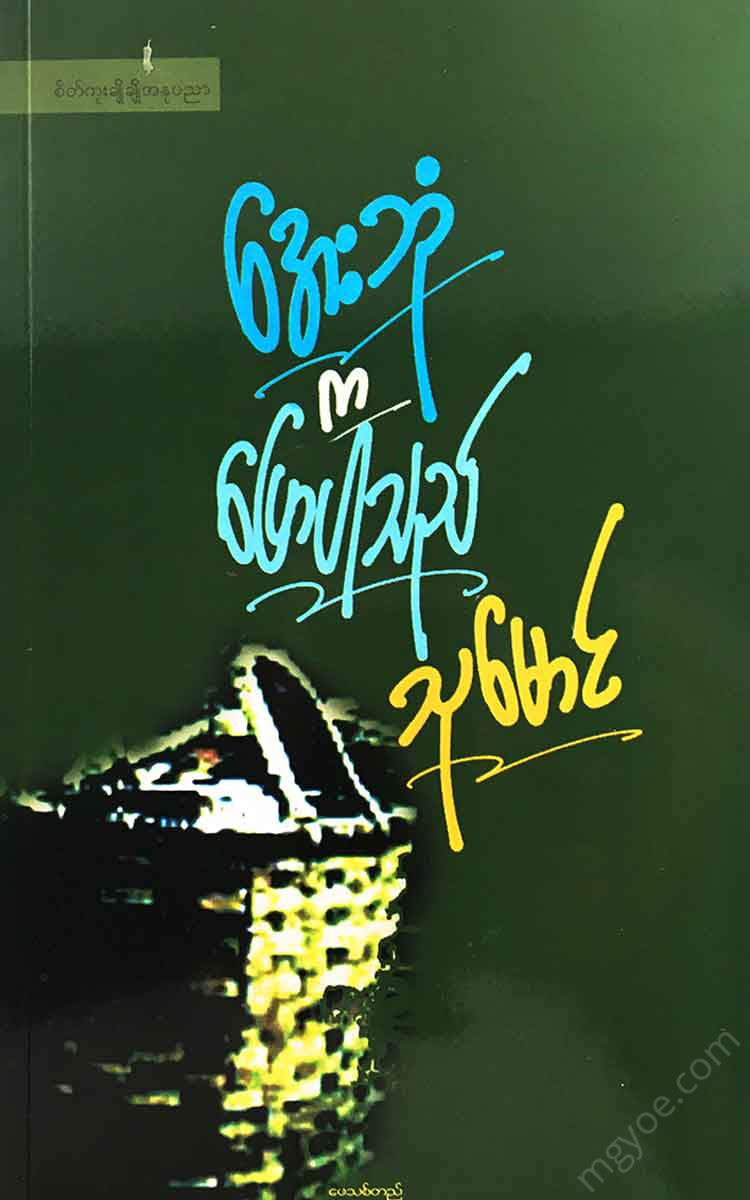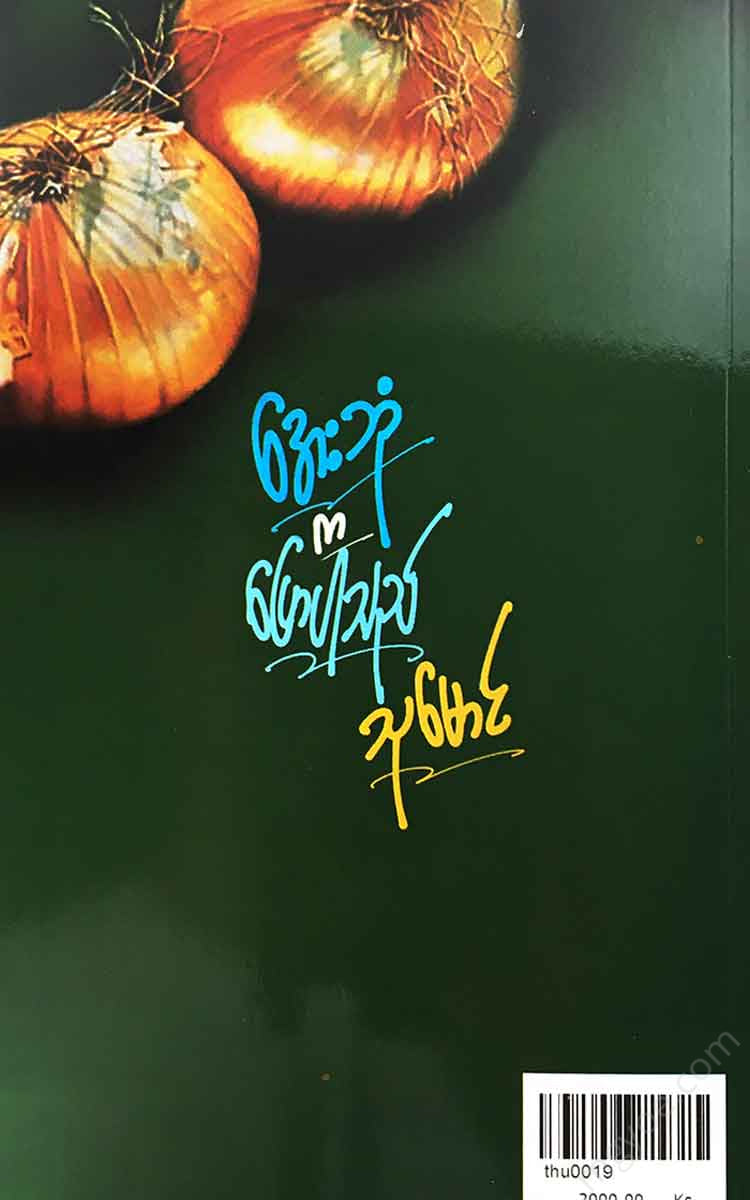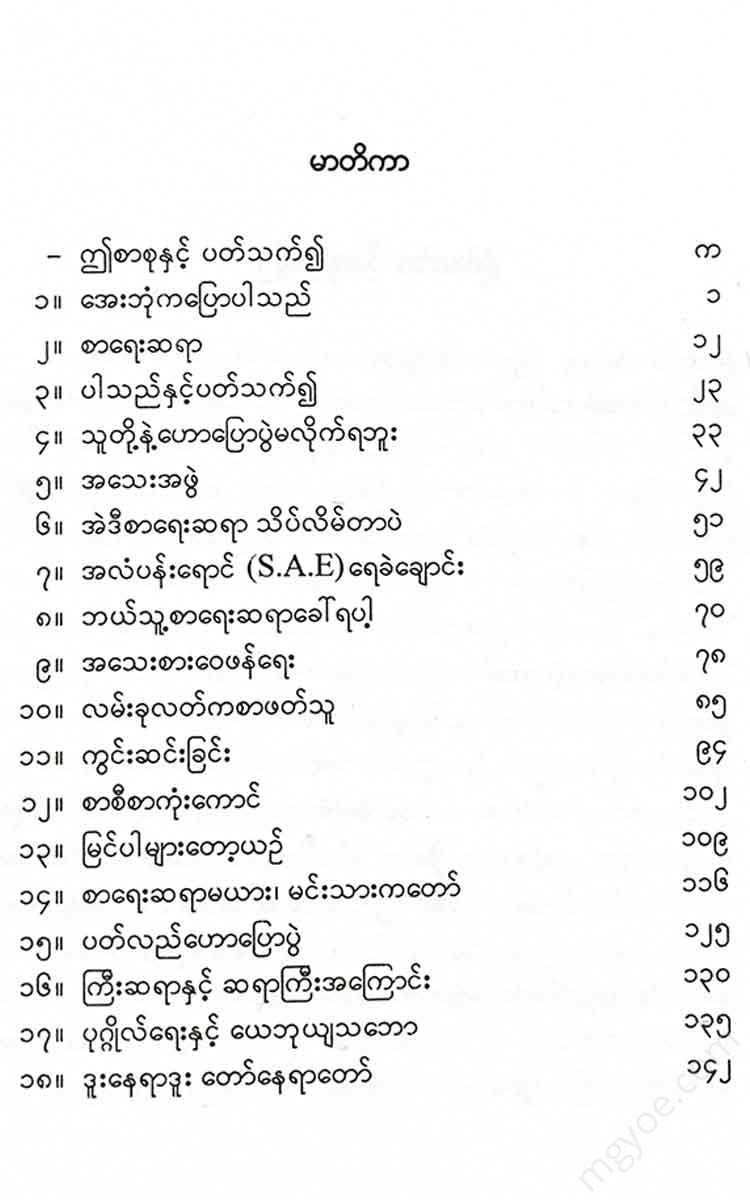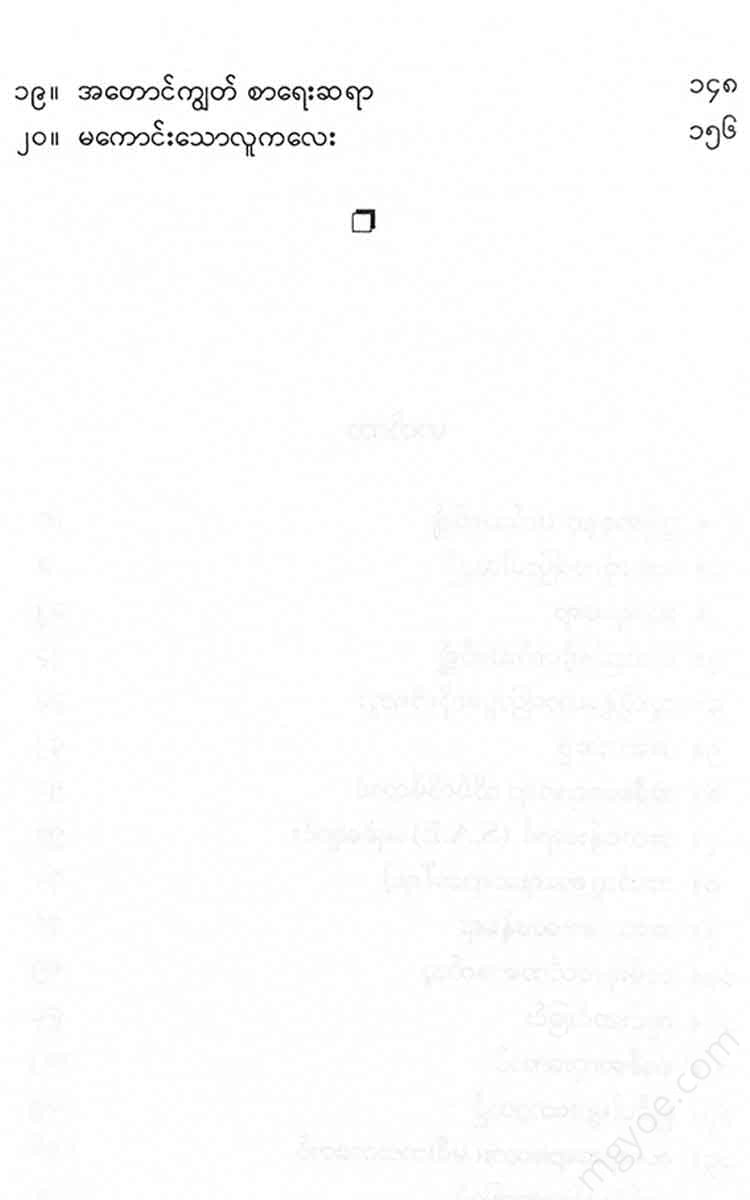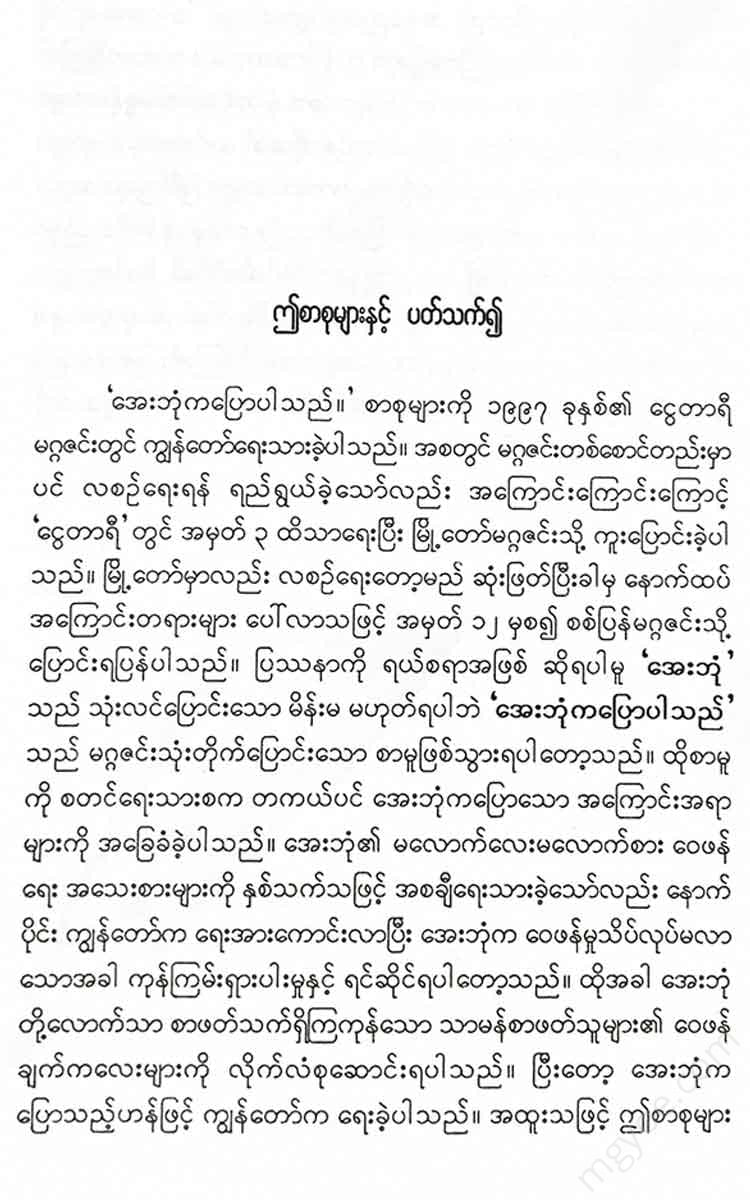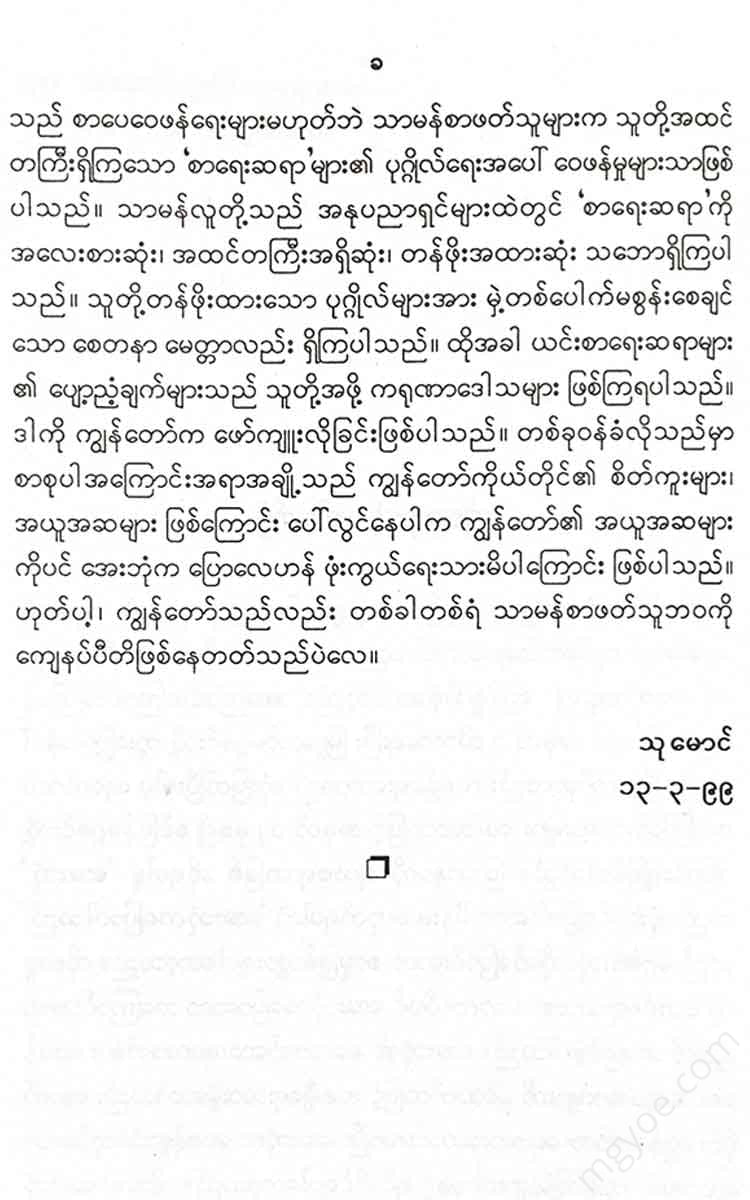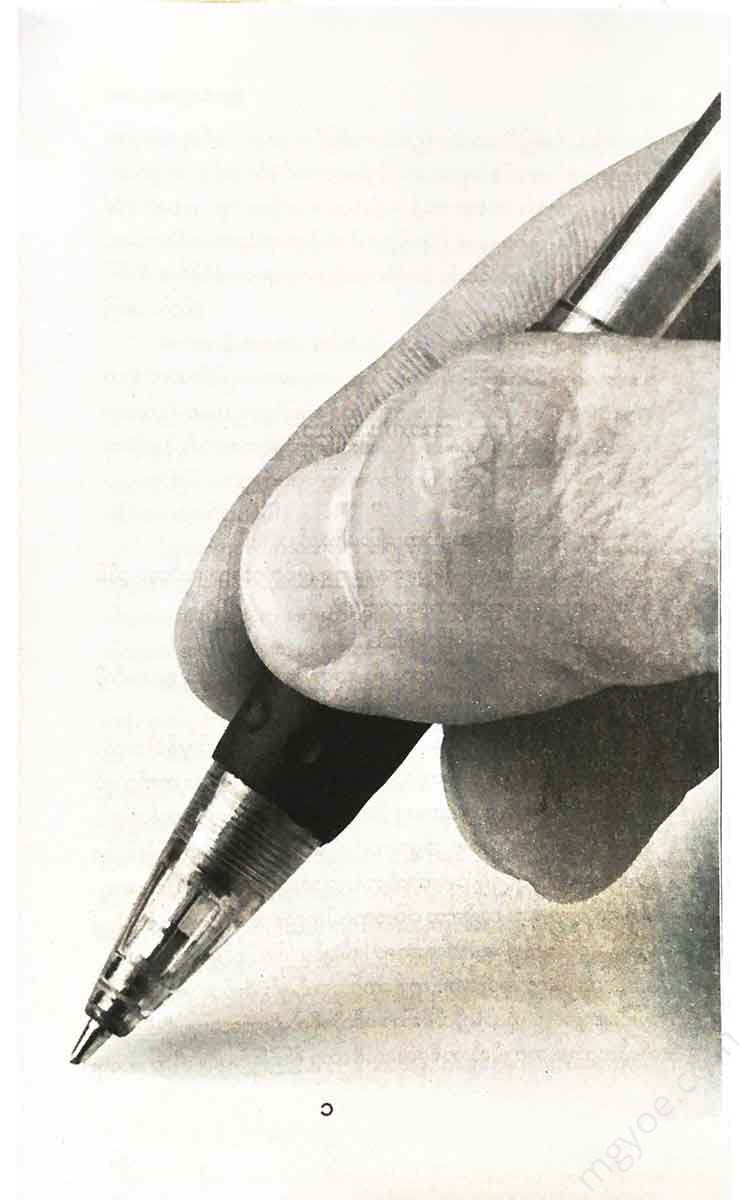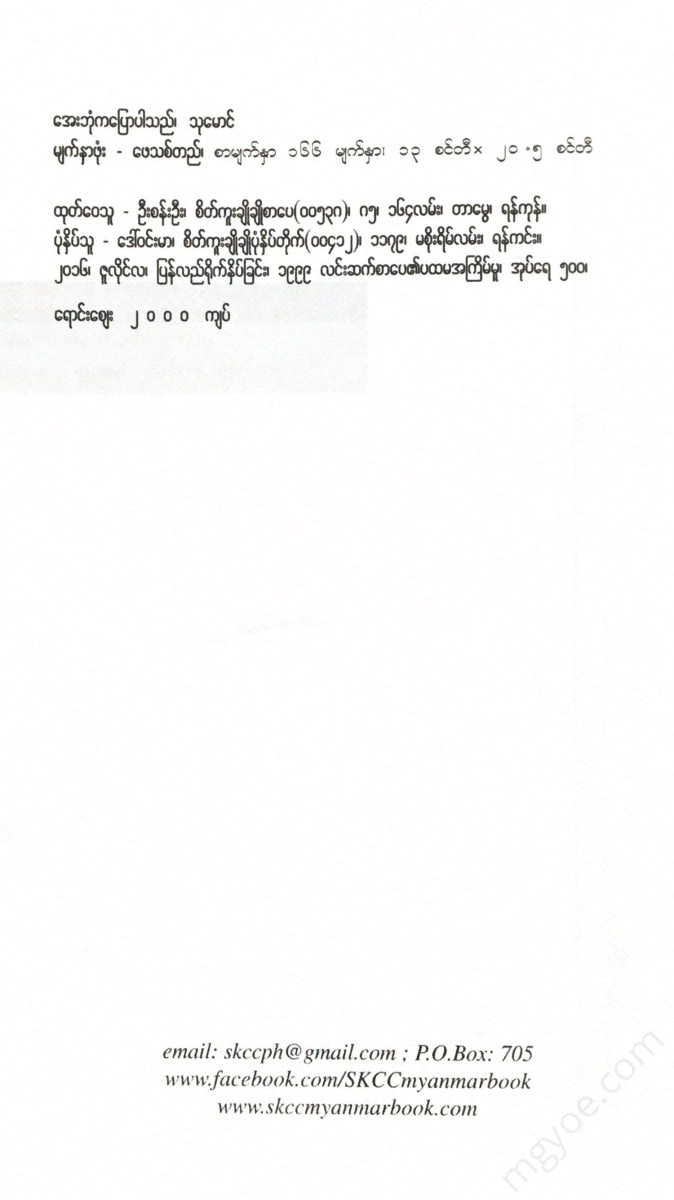စိတ်ကူးချိုချိုစာပေ
Thu Maung - Aye Bon said
Thu Maung - Aye Bon said
Couldn't load pickup availability
Ae Bon said
(1)
My wife, Aye Bon, said.
"I don't know how that guy became a writer. He's so rude. His writing is good."
I have to answer.
"A writer is just a person, and they have both good and bad habits."
In fact, Aye Bon's words are as true as they should be. My friend, a writer who visited my house, is a very poor person, even as an ordinary person. He is a low-class person in speech and behavior. However, if his character is low, it is questionable whether he can no longer be a writer. However, no matter how good his character is, he will never want to be a writer.
Many of my friends and fellow writers, including myself, have their own bad habits. That is, they have some bad habits. This is not a writer. It is just the nature of each person. Whether the environment can forgive them or not is a different matter. In any case, what Aye Bon said is true to the extent that I can say that the dignity of a writer is adjusted to the status of an oppressed person.
Being a writer in the world is a place that ordinary people value highly. Many people want to be artists. Even if they don't, they are happy. They are ultimately happy. Among them, those who become literary artists are not even considered worthy of respect.
Even those who are criticized for "writing for nothing" are not being compared to real writers. Saying that a child is a 10th grader is like comparing that child to a 10th grader.
Therefore, I know that Aye Bon means "writer" and means to express the higher level title.
I don't want to use the old saying "the buyer is always right". If we have to use it in the literary world, we should always prioritize the reader." This does not mean that we are too demanding in our literary work, ideology, or in our readers. It refers to the social relationship between the writer and the reader. Not only in relationships, but also when we write and express our ideas to the reader, we should especially praise and respect writers, big and small, who are honest and sensitive. We should only praise and respect them.
I don't want to say anything to my friend the writer I mentioned earlier, because he is a close friend, but I would like to support my wife Aye Bon's kind words about the writer because of her great kindness. This is also because of a small incident that I have personally witnessed.
(2)
It was around 1970 when I started writing, when I was just starting out. I wrote short stories under various pseudonyms. Since I wrote them all in a random way, my first readers were my friends. They knew that I wanted to be an engineer when I was young, so they didn’t think much of my writing. They didn’t even want to classify me as a poet. I still remember one thing they said to me: “Nga Pao, Nga Pao.”
At that time, one of the words I said in response was also memorable.
When I said the phrase, "A lot is good, but a lot is not," a Peruvian friend of mine inadvertently supported me by saying, "Hey... that's a good quote. This is an effective thought for someone who would become a writer." Now I'm starting to like my words again when I was young.
As I mentioned earlier, I remember vividly how my friends and my circle of friends (except for my father and mother) made fun of me for starting a short story, but I was delighted to see that the great writers (my fellow writers) were happy and supportive.
It is the nature of writers to give their own writings to their friends first. Then they reluctantly let a close literary figure read them. If by chance their manuscripts are published, they are happy. But if a famous writer praises their manuscript, they are sad. As for me, I grew up in my father's circle, so I had the privilege of being respected by many great writers, and when I learned that I was writing short stories, I felt the encouragement of great teachers. It may also be a childish desire. However, the kindness of great writers to welcome them is unquestionable. This is part of the meaning of this collection.
Let's say. In 1973, I began to be a writer who owned the name 'Thumaung'. I received the attention of many readers. I received the regret and respect of friends. I was praised by important figures in the literary community, especially by writers who had studied with me. Among them, the honors and very sweet advice of veteran teachers became the most delicious thing in my life.
(3)
It was after 1973. One day, my father, Sayar Thadhu, received a telephone call. My father was very hard of hearing. So I had to answer the phone. I would say what my father wanted to say and listen to what the other party said and repeat it back to my father without any accent. This was when my father and I were living in the same house.
The phone call I mentioned earlier was from the writer (Baba).
"Hello - is Teacher Sadhu there?"
Knowing my father's policy of always accepting what he had to say, I politely asked, "Who is in charge now?"
"It's me, sir."
"Ha... Baba."
I am very happy. I love my father very much. I memorized my Burmese language lessons from my father's writings when I was in school, and I also enjoyed his writings when I was pursuing literature. Ultimately, at the beginning of the song "Pan Oo Pan Maeng Thu" that led me to become a singer, I sang Baba's poem (Khay and Hnin Si) with a strong voice, "Le Daw Ka Bae, Pan Chai Khay Phu Seo Lo Maung Khu Pe" and so on. Although I made my debut with this song, the name of the song "Pan Oo Pan Maeng Thu" was changed to "Le Daw Ka Bae". This is part of my literary life.
When we were three or four years old, my father would take my family to watch movies and have snacks with us in the evenings and nights. I was too young to know how close we were to him. I was only talking about social life. There is nothing special to say about literature.
Another thing that came to mind was that my father's teacher, Daw Kyi Kyi, was my primary Burmese teacher in my education. She was a Burmese teacher when I was in the Industrial High School. I must say that I was lucky. At that time, the Burmese Department was led by U Kyaw Lwin (a writer of two books), and Daw Kyi Kyi was the head of the department.
I still remember. At that time, the school wall newspaper was run by Teacher Nga Phat Hla. I was passionate about engineering, but my literary talent was also very strong. At that time, I had to help the teacher. The teacher encouraged me to write a short story, so I wrote it.
"Chicken thigh paste"
If you pull, you struggle.
His strength
Full of revolutionary spirit.
(Actually, it is a reference to Saya Maung Shara's poem, "If you touch the water, you will think it is a gyal, What do you want to say?")
After reading this poem, I didn't know what pen name to use. So I approached the teacher and asked her to choose a pen name. I will never forget her answer.
"Oh.. I'm just doing my homework."
Then I became impatient and adopted the pen name “Ayu.” Then I explained the origin of the name.
"Ayu" is the name of the eldest of my seven blood brothers. "Ayu" (longevity) died at a young age. There are four of us.
I (Bala), the middle child, have made my pen name public and started using it as my eldest brother's name.
When explaining the origin of this pen name, the teacher praised him, saying, "That's a good idea, boy. It's a good idea."
Once, I was teased for treating the teacher like a mother.
“Mother, the poem about the water and the rose that Dad wrote is very touching. Is that a picture of Dad and Mom’s childhood?”
“Hey... boy, you're just being a jerk,” she said without continuing, smiling. I dare say that the teacher's smile was more mysterious than the Mona Lisa's. It was so beautiful and graceful. It was a smile that Academy Prince Thu Maung couldn't explain.
I am writing these stories simply to describe the beginnings of my social and literary connections with my father, my mother, and my teacher, Daw Kyi Kyi. That beginning is also the key to what I want to tell you now.
As I mentioned earlier, when the teacher called my father (my father never accepted anyone he didn't know), I asked him who he was, and he said softly, "It's me, sir." I was so happy. Then, in surprise, I called out, "Baba, Baba, son. Bala, Bala, how are you?" and so on. Then, "Aw... Teacher Thu Maung Ko. You should read the letter, the short story in Rumawa. It's about Rumawa and Kyaw.
